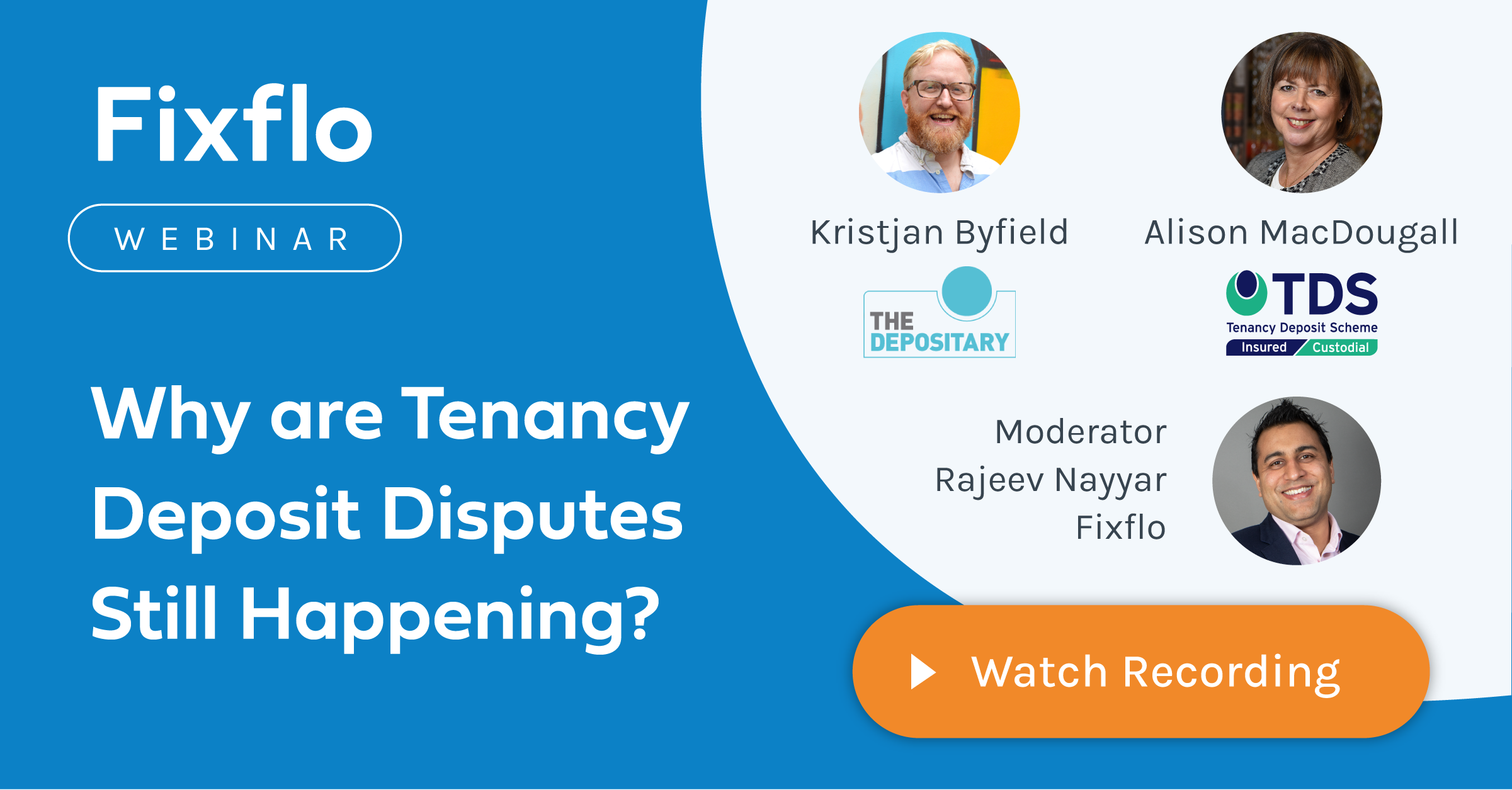Although the number of tenancy disputes settled by tenancy deposit schemes is going down for the first time in over a decade, there are still tens of thousands of disagreements over deposits every year. In a recent webinar, we asked experts Alison MacDougall, Director of Resolution at Tenancy Deposit Scheme (TDS) and Kristjan Byfield, Mission Commander at The Depositary, why, despite effective protection schemes being in place and increasing legislation over what a landlord can and can’t claim for, tenancy deposit disputes are still happening?
The role of emotions
"Emotion" was a clear answer from both panel experts. In a situation involving people, money and a valuable asset, emotions tend to run high, creating a perfect breeding ground for people to take things personally, object on principle and be unwilling or unlikely to find a resolution without intervention. Unresolved issues (a landlord upset about broken glasses or a tenant who is not happy about the management of repairs) that may have been allowed to fester during the tenancy can also enhance a situation where tempers are already running high.
Add to the heightened emotion the fact that most people approach the end of a tenancy in a hurry, with the landlord anxious to get the property ready for another tenant and the tenant keen to have the money to pay their next deposit, and you can understand why disputes can occur. Kristjan Byfield also commented that many tenants do not have a complete understanding of the check-out process—they expect a turnaround of two to three days and do not realise there are more steps involved.
The impact of wear and tear
Lack of understanding around the reason for deposit retention and the types of deductions that can be made also contributed to disputes. 75% of deposit disputes are raised by tenants due to what they see as unreasonable deductions by landlords, a proportion of whom need to be educated as to the nature of dilapidations and reasonable wear and tear.
But, as Alison MacDougall pointed out, a property is affected by the very nature of the people living in it. As there is not a technical standard for many common pain points like cleaning or wear and tear, it’s very difficult to find a balance between the competing expectations of landlord and tenant. Disputes are rarely about the fact itself—usually, both parties will accept there has been a scuff on the wall or a stain on the sofa—the dispute arises over the impact of that fact. And that’s where emotion becomes involved, and things get out of hand.
How can disputes be avoided?
With the emphasis so firmly on emotion, the key to reducing or resolving tenancy deposit disputes is to depersonalise things and stick to the facts. Inventory, which our experts agreed was one of the best value for money devices in property, is key in proving what kind of damage has been inflicted and what the appropriate compensation should be, while clear, non-condemnatory language is the way to guide the discussion and take the sting out of the dispute. More often than not, deposit dispute resolutions award split costs, indicating both parties have a point. The key is to get them to stick to it.
Learn about more of Kristjan and Alison's thoughts and observations by watching the full on-demand webinar, Why are Tenancy Deposit Disputes Still Happening?

BLOG DISCLAIMER
This article is intended for information purposes only and does not constitute legal advice. If you have any questions related to issues in this article, we strongly advise contacting a legal professional.
These blog posts are the work of Fixflo and are licensed under a Creative Commons Attribution-ShareAlike 3.0 Unported License. In summary, you are welcome to re-publish any of these blog posts but are asked to attribute Fixflo with an appropriate link to www.fixflo.com. Access to this blog is allowed only subject to the acceptance of these terms.


